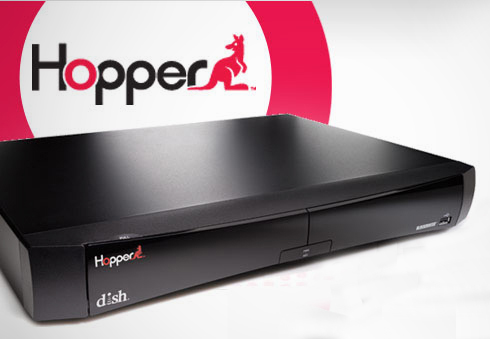Appeals court sides with Dish in the “Hopper” case
In yet another major legal set-back for television broadcasters fighting to control the use of their content, a California appeals court has ruled that The Dish Network’s use of “Hopper” DVR technology to allow subscribers to skip commercial advertising does not violate existing copyright rules.
Last year, Fox sued Dish over Hopper, a new feature for Dish’s digital video recorder that allows users to skip ads and record hours of primetime TV programming. Fox feared Hopper would erode the value of its advertising, but last November, U.S. District Judge Dolly Gee denied Fox’s motion for an injunction. Fox subsequently appealed.

In a unanimous three-judge decision on that appeal from the Ninth Circuit Court of Appeals, the court based its ruling on earlier decisions that held that technologies allowing for private copies — such as the Betamax and Cablevision’s DVR — are fair use under copyright law. Dish is not liable, the court found, because it is the viewers who are making the copies for their own personal use.
“Operating a system used to make copies at the user’s command does not mean that the system operator, rather than the user, caused copies to be made,” the court wrote. “Here, Dish’s program creates the copy only in response to the user’s command.”
Specifically, Fox had challenged two parts of the Hopper technology. The first, called PrimeTime Anytime, records every program broadcast by the four major TV networks each evening. The other, called AutoHop, automatically deletes the commercials from shows recorded using PrimeTime Anytime when they are played back.
The appeals court did not explore the ad-skipping issue in detail. That’s because Fox, the plaintiff in the case, owns the copyright only to its programming — not to the ads themselves. Therefore, the court found that Fox did not have the standing for it to address the entire set of issues.
“If recording an entire copyrighted program is a fair use, the fact that viewers do not watch the ads not copyrighted by Fox cannot transform the recording into a copyright violation,” the court wrote.
The professional video industry's #1 source for news, trends and product and tech information. Sign up below.
However, the court did offer Fox a suggestion for how it might control ad-skipping in the future. That, the court said, could be through the contracts it signs with distributors.
The decision is significant because it further loosens the control that broadcasters can exert over the shows they transmit. The website GigaOM cited an analysis at the Washington Post’s Wonkblog in which copyright professor James Grimmelmann suggests that “scale is no longer an issue” when it comes to primetime, and that consumers can now record large volumes for personal consumption.
The Hopper case is the second major loss for TV broadcasters. It came only a week after a New York appeals court ruled that Aereo, a service that streams broadcast content from the air to the Internet, is also legal.
